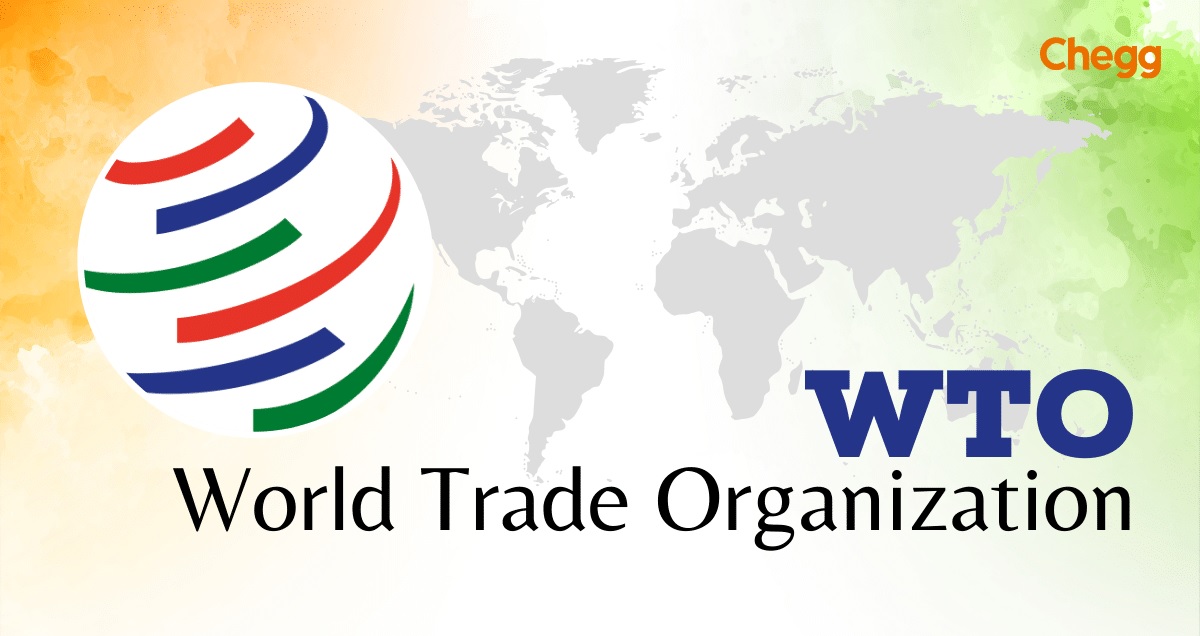The Hindu: Page 09
Syllabus : GS 3 : Indian Economy : Inclusive Growth

Context :
- This article explores the intersection of market dynamics, sustainability, and competition policies, highlighting how climate change affects supply and demand.
- It discusses global and national frameworks like SEBI’s sustainability reporting in India and initiatives by Japan and the EU to integrate sustainability into competition law.
- It emphasises the need for India to align competition policies with sustainability goals to achieve net-zero emissions.
About Market Dynamics
- Markets have evolved from the barter system to digital marketplaces, with supply and demand being the primary forces that determine prices and consumer preferences.
- Climate change disrupts the supply side of markets, causing a mismatch between supply and demand, which affects consumer demand and the overall economy.
Sustainability Reporting in India
- In 2023, the Securities and Exchange Board of India (SEBI) introduced a framework for corporate sustainability reporting.
- The Business Responsibility and Sustainability Report framework requires companies to disclose their value chain’s environmental impact.
- This framework aims to enhance transparency, combat greenwashing, and ensure sustainability benefits permeate through the value chain.
Global Perspectives
- Globally, competition authorities have been cautious about embracing sustainability considerations, fearing competitors might use them as an excuse to collude.
- Authorities should encourage companies to pursue sustainability goals jointly and assess cooperation that demonstrates the objective of sustainability.
Sustainability Approach of Japan
- Japan’s Anti-Monopoly Act includes guidelines for achieving a ‘green society’ through horizontal collaborations.
- These guidelines suggest that activities aimed at environmental sustainability are unlikely to restrict competition.
- Pro-competitive effects of sustainability activities can lead to consumer benefits.
Guidelines of European Commission
- The European Commission has revised guidelines on horizontal agreements to include sustainability agreements.
- Concerns arise only if such agreements entail serious competition restrictions or produce negative effects contrary to Article 101(1).
- Objectives include addressing climate change, reducing pollution, limiting natural resource use, and promoting innovation.
Competition Commission and Sustainability of India
- The Competition Commission of India (CCI) may explore including sustainability policies in its evaluations.
- India has pledged to achieve net-zero emissions by 2070 and ranks fifth in global warming contributions.
- CCI Chairperson Ravneet Kaur indicated the CCI will consider sustainability policies in market assessments.
CCI’s Response to COVID-19 and Sustainability
- During the pandemic, the CCI issued an advisory recognizing supply chain disruptions and the need for information sharing to ensure fair distribution.
- The Competition Act, 2002 includes safeguards to protect necessary business collaborations addressing COVID-19 concerns.
- The CCI can issue advisories exempting collaborations for sustainable goals or greener technological innovations when necessary.
Advocacy and Policy Formulation
- Under Section 49(3) of the Competition Act, 2002, the CCI can promote competition advocacy and participate in formulating economic policies related to competition and sustainability.
- The CCI can emphasise sustainability policies, enterprise collaboration for greener innovations, and release guidance on sustainability agreements.
Lessons from the U.K. and Other Initiatives
- The U.K.’s Competition and Markets Authority conducted a market study on the electric vehicle charging sector, considering competition alongside innovation and quality improvements.
- A similar study on green initiatives would benefit the Indian market.
- In 2011, TRAI recommended sustainability practices be part of the National Telecom Policy, promoting an environmentally friendly telecom sector.
- The CCI can consider incorporating sustainability practices into the National Competition Policy.
Conclusion: Integrating Competition and Sustainability
- Competition cannot remain isolated from sustainability concerns.
- Combating climate change requires adopting new technologies that reduce resource consumption and increase innovation through sustainability policies.
- Every economic sector in India must contribute to greener production to reach net-zero emissions.
- The CCI can enforce competition policies that improve innovation while considering environmental concerns.
- Integrating sustainability economics into competition policy can address market failures and collective action problems.
- By issuing guidelines, the benefits of sustainability will outweigh potential negative effects on competition.
- Including sustainability considerations in assessments of cooperation among competitors can significantly benefit market sustainability.
Business Responsibility and Sustainability Report (BRSR)
- In 2021, the Securities and Exchange Board of India (SEBI) introduced the Business Responsibility and Sustainability Report (BRSR) framework, mandating that the top 1,000 listed companies in India disclose their performance on environmental, social, and governance (ESG) parameters.
- This initiative aimed to enhance transparency and encourage responsible business practices, building on the earlier Business Responsibility Report (BRR) introduced in 2012.
Importance of Sectoral Contribution to Sustainability
- Diverse Economic Sectors: The key sectors such as agriculture, construction, power, manufacturing, transport, and tourism are crucial for transitioning to a green economy. For example, electric transport and eco-tourism.
- Government Initiatives: The Indian government is actively promoting green growth through investments in priority sectors, which include manufacturing, renewable energy, and electric mobility. For example, An allocation of ₹19,700 crore for the production of green hydrogen.
- Green Manufacturing: The manufacturing sector is a significant focus for greening efforts, with studies indicating that sustainable manufacturing practices can lead to substantial reductions in greenhouse gas emissions. For example, the (Zero Defect Zero Effect) ZED initiative aims to create a competitive, qualitative, and clean manufacturing ecosystem.
- Renewable Energy Commitment: India has set ambitious targets for increasing its non-fossil energy capacity to 500 gigawatts by 2030.
- Collaboration and Policy Frameworks: Initiatives like the Partnership for Action on Green Economy (PAGE) and various policy dialogues aim to facilitate collaboration among sectors to promote inclusive and sustainable economic growth.
About Securities and Exchange Board of India (SEBI)

- SEBI is the regulatory authority overseeing India’s securities and commodity markets.
- Established in 1988 as a non-statutory body, SEBI was granted statutory powers with the enactment of the SEBI Act 1992 by the Indian Parliament.
- It operates under the purview of the Ministry of Finance.
- SEBI’s structure includes a chairman nominated by the GoI, members from the Union Finance Ministry, the Reserve Bank of India, and others.
- Its headquarters is in Mumbai, with regional offices in Ahmedabad, Kolkata, Chennai, and Delhi.
About Competition Commission of India (CCI)
- The CCI is a statutory body established under the Competition Act, 2002 by the Vajpayee government.
- It aims to promote and sustain competition, protect consumer interests, and ensure freedom of trade.

- The commission operates as a quasi-judicial body, providing opinions to statutory authorities and adjudicating cases.
- Evolution of CCI:
• Established in response to the need for promoting competition and private enterprise, especially after India’s economic liberalization in 1991.
• Replaced the Monopolies and Restrictive Trade Practices Act, 1969 (MRTP Act) based on recommendations from the Raghavan Committee.
- Key Features of the Competition Act:
• Passed in 2002 and subsequently amended to align with modern competition laws.
• Prohibits anti-competitive agreements, abuse of dominant position, and regulates combinations causing adverse effects on competition.
• Established the Competition Commission of India and the Competition Appellate Tribunal.
• The National Company Law Appellate Tribunal (NCLAT) replaced the Competition Appellate Tribunal (COMPAT) in 2017.
• CCI comprises a Chairperson and 6 Members appointed by the Central Government.
• Members must possess significant expertise in various domains such as law, economics, finance, and management or qualified to be a judge of a High Court.
• Regulating Mergers and Acquisitions:
Ensuring mergers and acquisitions do not harm competition in the market.
Preventing monopolistic practices and promoting fair competition.
• Investigating Anti-Competitive Practices:
Probing into cartels, collusive behavior, and abuse of dominant market positions.
Taking action against entities engaging in anti-competitive practices.
• Market Studies and Research:
Conducting studies to assess market dynamics and competition levels.
Identifying trends and issues affecting competition in various sectors.
• Handling Complaints:
Addressing complaints filed by individuals or businesses regarding anti-competitive behavior.
Initiating investigations based on credible complaints received.
• Adjudication and Penalty Imposition:
Adjudicating cases related to competition law violations.
Imposing penalties on entities found guilty of breaching competition regulations.








